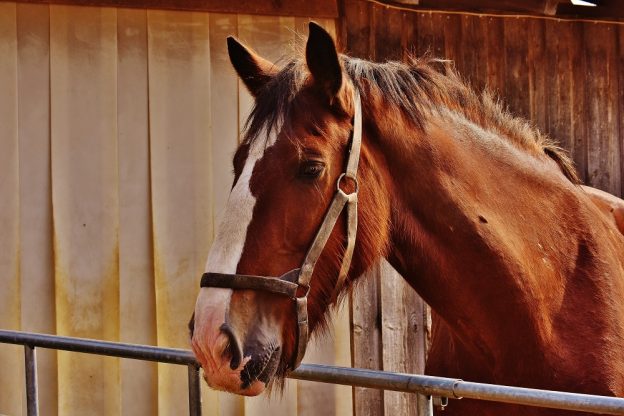If you’re interested in studying equine veterinary nursing with us, you may have noticed that entry onto our Level 3 Diploma in Equine Veterinary Nursing programme requires you to have secured employment within an equine or mixed (small animal and equine) veterinary practice that is an RCVS approved TP or aTP.
Equine veterinary nursing is a popular profession and entry onto our training programme is often very competitive, therefore work experience opportunities for aspiring student veterinary nurses can sometimes be hard to come by…
If you’re struggling to gain the employment needed to apply for the course, don’t give up! Take a look at our tips and advice about how to gain employment in a veterinary practice:
Check local newspapers and online job boards
Job boards such as the CAW jobs board, Vet Times Jobs or Animal Jobs Direct list advertisements from veterinary practices for student equine veterinary nurses.
Follow local veterinary colleges and veterinary practices on social media
Many training providers and veterinary practices will post their latest vacancies for student veterinary nurses on their social media pages, so it’s worth following those pages to ensure you are the first to see any new opportunities. Follow The College of Animal Welfare on Facebook
Check out your local veterinary practices’ websites
Many practices have their own vacancy page or further information about placement opportunities on their website, which can help you learn more about what they’re looking for. This way, you’ll also read more about who the practice is and what they do. Find an equine veterinary practice near you
Contact your local veterinary practices directly
By contacting practices to introduce yourself and enquire about employment opportunities directly, you are putting a face to your name and showing commitment and enthusiasm! You can drop them an email, give them a call or even stop by the practice to meet staff members in person. Even if they are unable to offer you a placement at that moment, they may be able to hold your details ready for future opportunities, or introduce you to other members of the profession who can help you gain a placement. Find an equine veterinary practice near you
Be aware that veterinary practices are often very busy, so don’t be disheartened if you aren’t able to speak to someone straight away. Practices are particularly busy at peak times such as Mondays and Fridays, so it’s worth trying to contact them mid-week.
Ensure your CV is up-to-date
Keeping your CV up-to-date means you’ll be able to apply for positions as soon as they become available. Make sure your CV contains any relevant experience or hobbies that you may have that will complement your application for work experience, for example any additional animal care studies or work experience in a related environment such as a farm, rehoming centre or kennels/cattery.
Attend relevant open evenings and career days
Career days such as our Careers With Animals Day bring local veterinary employers and colleges under one roof, which is the perfect opportunity to discuss your career plans and gain advice from industry professionals. What’s more – they can be a good opportunity to meet with local practices directly to enquire about work opportunities.
Gain other relevant veterinary work experience
Any experience you can gain working with animals will help to boost your employability prospects and increase the likelihood of you securing work in a veterinary practice at a later date. For example, if you’re struggling to get a job as a student nurse in practice due to lack of experience, could you volunteer elsewhere to build up more skills and knowledge – for example in a local stables?
You could even look into undertaking work experience abroad. Many experience providers such as Oyster Worldwide offer veterinary and animal care internships/work placements abroad for those keen to gain more experience. These projects give you the opportunity to gain practical experience with animals and in some cases shadow qualified vets and vet nurses to learn more about what they do.
If you have any questions about the entry requirements for the Level 3 Diploma in Equine Veterinary Nursing programme, please do not hesitate to contact us at admin@caw.ac.uk or call us on 01480 422060.

